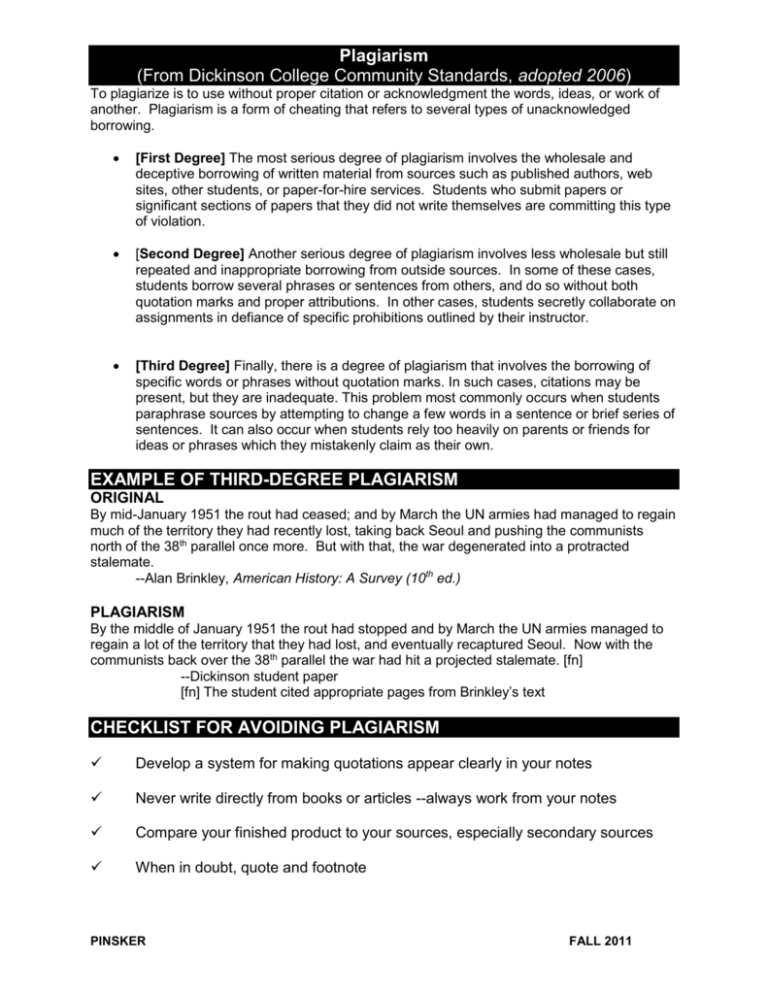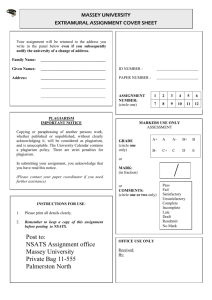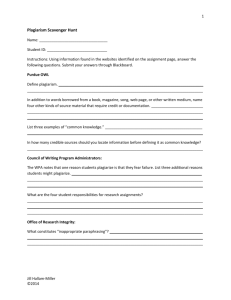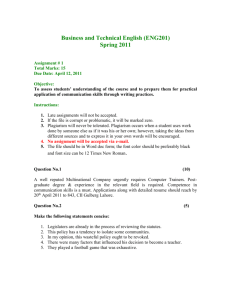Plagiarism - Dickinson Blogs
advertisement

Plagiarism (From Dickinson College Community Standards, adopted 2006) To plagiarize is to use without proper citation or acknowledgment the words, ideas, or work of another. Plagiarism is a form of cheating that refers to several types of unacknowledged borrowing. [First Degree] The most serious degree of plagiarism involves the wholesale and deceptive borrowing of written material from sources such as published authors, web sites, other students, or paper-for-hire services. Students who submit papers or significant sections of papers that they did not write themselves are committing this type of violation. [Second Degree] Another serious degree of plagiarism involves less wholesale but still repeated and inappropriate borrowing from outside sources. In some of these cases, students borrow several phrases or sentences from others, and do so without both quotation marks and proper attributions. In other cases, students secretly collaborate on assignments in defiance of specific prohibitions outlined by their instructor. [Third Degree] Finally, there is a degree of plagiarism that involves the borrowing of specific words or phrases without quotation marks. In such cases, citations may be present, but they are inadequate. This problem most commonly occurs when students paraphrase sources by attempting to change a few words in a sentence or brief series of sentences. It can also occur when students rely too heavily on parents or friends for ideas or phrases which they mistakenly claim as their own. EXAMPLE OF THIRD-DEGREE PLAGIARISM ORIGINAL By mid-January 1951 the rout had ceased; and by March the UN armies had managed to regain much of the territory they had recently lost, taking back Seoul and pushing the communists north of the 38th parallel once more. But with that, the war degenerated into a protracted stalemate. --Alan Brinkley, American History: A Survey (10th ed.) PLAGIARISM By the middle of January 1951 the rout had stopped and by March the UN armies managed to regain a lot of the territory that they had lost, and eventually recaptured Seoul. Now with the communists back over the 38th parallel the war had hit a projected stalemate. [fn] --Dickinson student paper [fn] The student cited appropriate pages from Brinkley’s text CHECKLIST FOR AVOIDING PLAGIARISM Develop a system for making quotations appear clearly in your notes Never write directly from books or articles --always work from your notes Compare your finished product to your sources, especially secondary sources When in doubt, quote and footnote PINSKER FALL 2011






